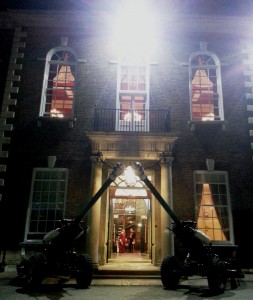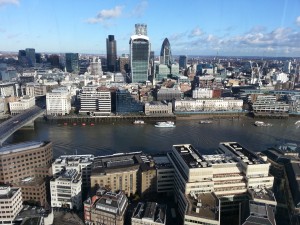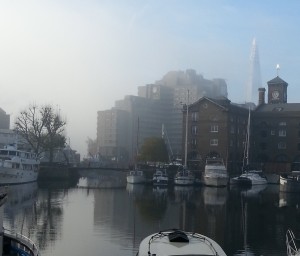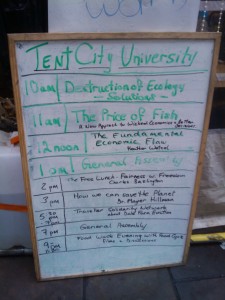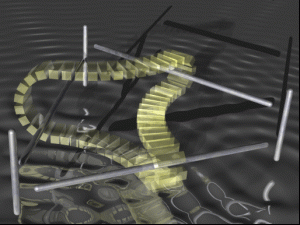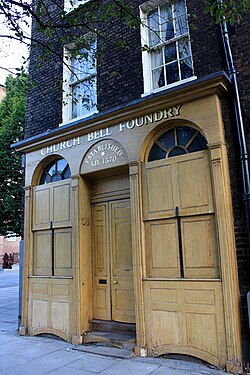April turned out to be a whirlwind month rather than a showery one. The month opened with a not-April-fool article in Banking Technology, co-written with my friend Bob McDowall and published promptly courtesy of my friend, editor David Bannister. This article set the tone for a whole series of meetings and initiatives around blockchain technologies.
Building Bit – What’s A Poor Government To Do About AltCoins? |
Michael Mainelli and Bob McDowall | 2014 |
Banking Technology, Informa plc (April 2014), pages 30-33.
|
Equally interesting though have been the numerous reactions to Z/Yen’s publication of Global FInancial Centres Index 15 showing London pipped for the top spot by New York City.
| The Global Financial Centres Index 15 | Mark Yeandle and others | 2014 |
Long Finance & Qatar Financial Centre Authority (March 2014), 58 pages.
|
Nobody volunteered to write the foreword, so sadly I had to pen the following:
“London’s powerful wholesale financial markets, which leverage its strong brand, generate disproportionate benefits in jobs and exports. London suffers when global financial news tarnishes that brand – London-IBOR, the London Whale, the foreign exchange scandal only now starting to bite, with rumours circulating about other index, benchmark, and commodities scandals. In fact, it seems increasingly apparent that authorities were aware of, yet tolerated, the LIBOR scandal well into 2012. If the regulators are unimpressive, they are certainly not inexpensive. Some claim that the majority of jobs created have been in compliance departments or compliance providers, accountants or actuaries or lawyers. A Middle Eastern businessman states the problem plainly, “though deals have become vastly more expensive, I don’t feel any safer.” “
It probably doesn’t get more encouraging to read a related snippet from IFC Economic Report which made it into our Gresham Symposium, “Saving Havens: Off Shore, Onshore, Midshore: International Financial Centres“:
“From January to June 2013, the UK media had headlines such as “Google, Amazon, Starbucks: The rise of ‘tax shaming’” (BBC), and “David Cameron: Tax avoiding foreign firms like Starbucks and Amazon lack ‘moral scruples’” (The Telegraph). In late June 2013, Starbucks agreed to pay £10 million to the UK Treasury. Given that Starbucks reportedly paid no tax in the previous four years, £8.6m in corporation tax in the UK over the previous 14 years, yet had sales in the UK of £400m per annum, this might sound like a victory over tax evasion.
At no point has any authority accused Starbucks of not complying with tax law. Having followed the tax code correctly, Starbucks reached annual agreements with HM Revenue & Customs that little or no corporation tax was payable. The majority of people seem to have no problem with Starbucks’ payment or feel an urgent need to reform tax laws. However, as an accountant I wonder how the payment should be booked. Certainly not to marketing or advertising expenses? Possibly to tax? Tax liabilities have always been a complicated area, but in this case is the payment:
- a mistake, an adjustment to historic tax liabilities, or a retroactive tax?
- a bonus payment or donation to HM Revenue & Customs?
- a donation or bribe paid to the UK coalition government, or perhaps David Cameron’s Conservative Party?
- a shakedown or protection racket payment to a corrupt government?
Perhaps I might mischievously suggest that Starbucks be reported to the US authorities under The Foreign Corrupt Practices Act of 1977 which “was enacted for the purpose of making it unlawful for certain classes of persons and entities to make payments to foreign government officials to assist in obtaining or retaining business.” [US Department of Justice website] The rules on international corporate taxation are close to unworkable, though I wonder why more people do not question the theoretical basis for taxing corporations, which is at best dubious.”
Socially, April was much more upbeat. There was the whirlwind contrast of greeting the President of Ireland, Michael Higgins, and the Taoiseach, Enda Kenny, at Mansion House and Guildhall, with the celebrations of St George’s Day. It was quite emotional hearing the Irish National Anthem, “Amhrán na bhFiann”, being played in the Guildhall in honour on the evening of 9 April. Something I never expected to hear three decades ago, yet also a sound that still discomfits those who lost loved ones during the Troubles. The Lord Mayor’s excellent speech on the night says it all.
Increasingly emotional too were this year’s celebrations in honour of St George’s Day, 23 April. Three decades ago it was not a day one heard much about. Today, there isn’t a patriotic pub not festooned with flags. I attended two notable events. Courtesy of Dudley Edmunds, I was able to hear a wonderful talk from the last of the dambusters, Johnny Johnson. Bright as a button and with a deft touch to his talk, Johnny made you realise what a group of determined young men could achieve, and still retain their humanity, as he related the story of 617 Squadron’s May 1943 raid.
The second event was the St George’s Dinner at the Honorable Artillery Company which I attended for the first time in an ex officio Aldermanic capacity in Old Bailey velvets. The female officer toasting the guests reminded the guest of honour, the US ambassador, that the Company and the USA had had some low and high points in their relationship, such as burning the White House in 1814, though she left us a bit misdirected about high and low. We concluded the dinner with three rounds singing Rule Brittania, Land of Hope and Glory, and Jerusalem along with the band and accompanied by the American ambassador, which wound up with us standing on the tables in formal wear and waving our napkins. The photo above was taken as I left about midnight, outsung and outdrunk by men and women who’d entered military service in the 1940’s and 1950’s.

